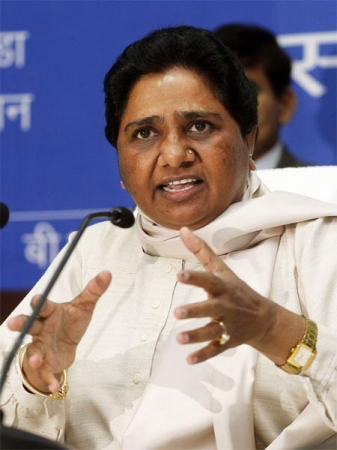The upper parliament in India passed a remarkable and historic bill recently—1/3 of all legislative seats need to be filled by women. The world’s largest democracy, it guarantees seats for women in the national legislature and state assemblies. The bill still needs to be passed in the lower parliament, but it is expected to pass.
Our congress has more women than ever before, but it pales in comparison. In the 111th United States Congress, there are 76 women out of 435 serving the U.S. House and 17 out of 100 in the U.S. Senate. To reach 1/3 the House would need to have 145 women, or 69 more. In the Senate there would need to be 50, or 33 more.
We do need more women in Congress, and women have a difficult road getting to this level of power in our country. Women in our country weren’t even allowed to be elected until 1920! What if we adopted this rule?
According to recent research by Pew Research Center, Americans believe women have what it takes to be political leaders, but when it comes to saying they would be better leaders than men, the research says “6% of respondents in a survey of 2,250 adults say that overall women make better political leaders than men. About one-in-five (21%) say men make the better leaders, while the vast majority — 69% — say men and women make equally good leaders.
The paradox embedded in these survey findings is part of a wider paradox in modern society on the subject of gender and leadership. In an era when women have made sweeping strides in educational attainment and workforce participation, relatively few have made the journey all the way to the highest levels of political or corporate leadership.
Why not? In the survey, the public cites gender discrimination, resistance to change, and a self-serving “old boys club” as reasons for the relative scarcity of women at the top. In somewhat smaller numbers, respondents also say that women’s family responsibilities and their shortage of experience hold them back from the upper ranks of politics and business.
What the public does not say is that women inherently lack what it takes to be leaders. To the contrary, on seven of eight leadership traits measured in this survey, the public rates women either better than or equal to men.”
But when asked specifically what accounts for a slow movement toward gender parity in top political positions, about half of all surveyed said a major reason is that Americans simply aren’t ready to elect a woman to office.
So we think women can do it equally as well as men but still don’t think we’re ready? This does not make sense to me. I like the idea of making higher numbers mandatory.
With even a third guaranteed to be women, how do you think this country would be run differently? Would both sides of the aisle be so “dig your heels” in divided? Would more actually get done?
Respondents don’t say family responsibilities are the biggest thing that holds them back but do say it is a factor–Do you think it is easier for women with no children to get to these higher ranks?
If we required more women in Congress, we’d likely still see more women with children in the seats, because 4 out of 5 have children to begin with. But I do wonder if this overall ratio (1 in 5 without, 4 and 5 with) of no kids to kids would be mirrored in Congress if we required more women to be elected into those seats. But would it more likely that we would see more childfree female political leaders than not if we had to have more women in Congress?
One thing for sure, I predict that if more women were in those seats the country would run better.
Do you agree?


